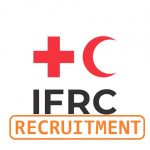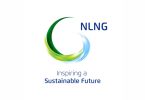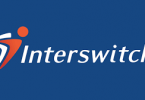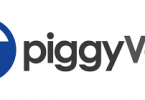
International Federation of Red Cross and Red Crescent Societies
The International Federation of Red Cross and Red Crescent Societies (IFRC) is the world’s largest humanitarian network and is guided by seven Fundamental Principles: Humanity, impartiality, neutrality, independence, voluntary service, universality and unity.
We are recruiting to fill the position below:
Job Title: Budget Costing Consultant
Location: Abuja
Employment Type: Contract
Duration: 3 Months
Organizational Context
The World Health Assembly (WHA) in May 2011 recognized cholera re-emergence as a major global public health problem and adopted WHA resolution 64.15, calling on all Member States for the enactment of a comprehensive and integrated global approach to cholera control. Subsequently, the Global Task Force on Cholera Control (GTFCC) was revitalized to create the new momentum around cholera control and coordinating partners and activities. In 2017, the new global strategy Ending Cholera: A Global Roadmap to 2030 aimed to achieve a 90% reduction in cholera death was launched. The GTFCC’s operational arm, the Country Support Platform (CSP) hosted by the International Federation of Red Cross and Red Crescent Societies (IFRC), is mandated to provides support to countries that require technical assistance in the development of the long-term cholera control strategies, resource mobilization, capacity building and implementation of research projects. With Nigeria one of the countries supported by the GTFCC’s CSP.
In 2021, Nigeria recorded its largest cholera outbreak, since its first reported case in 1970, with 111 062 cases and 3 604 death were reported. This constituted 79% of all reported cholera cases in Africa and the largest in past 20 years. Cholera cases were recorded in almost all states in country, with reported cross-border transmission to neighbouring countries – necessitating for a more robust prevention and control plan for cholera.
The cholera control and prevention lie under the auspices of the Nigeria Centre for Disease Control and Prevention (NCDC) and technically overseen by National Cholera Technical Working Group (NCTWG). The NCTWG has made several bold steps in this regards: 1) the activation of an Emergency Operation Centre (EOC) to respond to recurrent cholera outbreaks, 2) the coordination of essential sectoral partners and activities, and 3). the development of a National Cholera Plan – National Strategic Plan of Action on Cholera Control (NSPACC) – to guide forward the cholera control aimed towards the Global Roadmap.
The National Strategic Plan of Action on Cholera Control (NSPACC) aims to guide cholera control in Nigeria through a well-coordinated multi-sectoral approach that emphasizes on continuous prevention efforts that accompanies response efforts rather than the traditional focus on outbreak response alone. These efforts prioritise cholera high burden and risk areas with targeted multisectoral interventions depending on the identified gaps in burden areas. The plan is structured in nine technical thematic areas of the NCTWG: Leadership and coordination, Surveillance & Epidemiology, Laboratory, Case Management, Risk Communication & Community Engagement (RCCE), Water, Sanitation, and Hygiene (WASH), Oral cholera vaccine (OCV), Logistics and Research.
The first NSPACC (2018 – 2023) was developed through series of stakeholder engagements with the support of the GTFCC and the World Health Organization (WHO) following a cholera hotspot mapping that reviewed cholera data from 2012 – 2017. The plan, although not officially endorsed, has since guided Nigeria cholera preparedness and response activities. However, the 2021 cholera outbreak has informed the need to review the existing plan to be better target identified gaps with investing in long-term WASH investments, strengthening surveillance, introducing preventive OCV campaigns while building resilient communities.
Job Purpose
- The National Strategic Plan of Action on Cholera Control (NSPACC) 2023 – 2027 is being developed from the existing NSPACC 2018 – 2023 and in accordance with the GTFCC guidance on developing the National Cholera Plan (NCP).
- Series of technical workshops, stakeholder engagement and consultative meetings have been conducted following the cholera hotspot mapping done in 2021 using with cholera data from 2018 – 2021.
- The plan’s situational analysis, country’s goal, strategic objectives, priority interventions with the implementation are well detailed. However, to finalize the NSPACC, the costing of the implementation plan is crucial for the submission of the plan to the Independent Review Panel of the GTFCC for endorsement and the adoption of the plan by the Federal Government.
The Objective of the Budgeting:
- To develop NSPACC budget against agreed plans and in line with IRP (Independant Revie Panel) expectations for Country Budget.
Job Duties and Responsibilities
- Support the development of a costing tool for the budgeting of the NSPACC and aligned with government budgeting and planning format/template.
- Develop and collate the budget for each’s pillar implementation plan.
- Work closely with the NCDC, relevant ministries and NCTWG pillar leads in the development of the NSPACC budget.
- Facilitate critical meetings and validatory process for the NSPACC budget for the final submission to the IRP (Independent Review Panel).
- incorporate reviews/feedback after the NCTWG’s review of drafts.
Methodology:
- NSPACC document familiarization
- Consultative meetings with key contacts
- Working sessions with pillars of the NCTWG
Deliverables:
- The consultant will provide the following deliverables:
- Final Draft (post review meeting) of NSPACC Budget with incorporation of all feedback and review notes.
- All final documents must be delivered in English Language.
- Roadmap/Workplan for the development of the NSPACC Budget
- Clear documentation of the budget development process, including any references, assumptions or data sources used.
- Zero Draft of NSPACC Budget per pillar according to government budget and planning template.
Education
Required:
- Advanced (Masters) University Degree in Public Health, Health Financing, Business Administration, Finance / Accounting, or a relevant discipline.
- Professional accounting qualification from an internationally recognized institute of accountancy, would be an added advantage.
Experience:
- Proficiency and familiarity with government cost analysis tools and templates.
- A minimum of 7 years of professional and progressive work experience in an accounting and financial management capacity
- Experience with Government sector stakeholders is an asset.
Knowledge, Skills and Languages:
- Fluency in English both oral and written is required.
- Competencies, Values and Comments.
Schedule of Payment
- Payment would be made based on deliverables.
Method of Application
Interested and qualified candidates should:
Click here to apply






